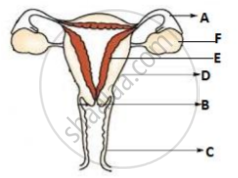Advertisements
Advertisements
Question
The advantage that internal fertilisation has over external fertilisation is that in internal fertilisation :
(a) new off-springs are exactly like the parent
(b) production of large numbers of gametes is unnecessary
(c) copulation and fusion of gametes is passive
(d) fewer individuals are produced
Solution
(c) production of a large number of gametes is unnecessary.
In internal fertilisation, there is no need for the production of a large number of gametes as it provides a safe environment.
APPEARS IN
RELATED QUESTIONS
What is the effect of DNA copying, which is not perfectly accurate, on the reproduction process? How does the amount of DNA remain constant though each new generation is a combination of DNA copies of two individuals?
What is the name of sex cells (other than gametes)?
Fill in the following blank with suitable word :
The cells involved in sexual reproduction are called .............
Distinguish between a gamete and a zygote.
Define the term Implantation.
“The chromosomes number of the sexually reproducing parents and their offspring is the same.” Justify this statement.
Explain why variations are observed in the offsprings of sexually reproducing organisms?
Answer the following question.
It is commonly observed that parents feel embarrassed to discuss freely with their adolescent children about sexuality and reproduction. The result of this parental inhibition is that the children go astray sometimes.
Explain the reasons that you feel are behind such embarrassment amongst some parents to freely discuss such issues with their growing children.
Answer the following question.
Which is the function of male accessory glands?
Identify the labels from the given diagram.

